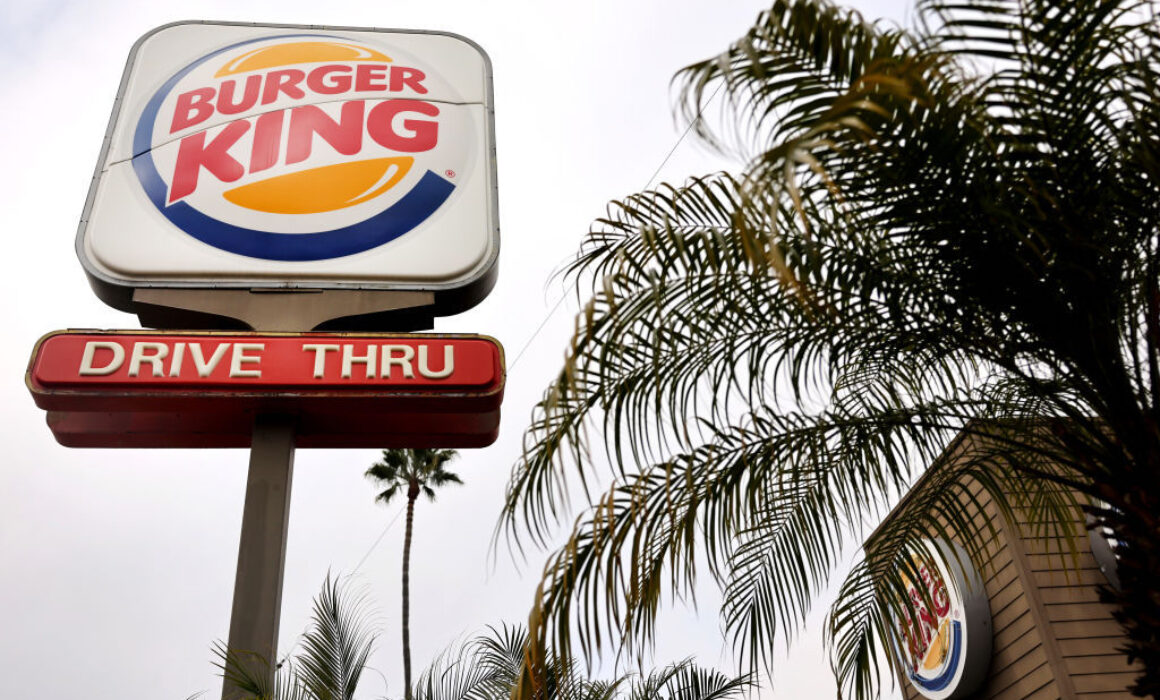Fast-Food Companies Can Easily Afford California’s New Minimum Wage
March 28, 2024
Large corporate markups and profit margins leave more than enough room for the new $20-per-hour wage.
The Roosevelt Rundown features our top stories of the week.

Fast-food companies in California, such as Burger King, will have to comply with a $20-per-hour minimum wage beginning April 1. (Photo by Mario Tama / Getty Images)
Fast-Food Firms Can Handle a Minimum Wage Increase
Starting April 1, fast-food workers in California will be paid at least $20 an hour, thanks to legislation passed last fall that raised the industry-wide minimum wage.
Companies shouldn’t have a problem absorbing those costs. As Alí R. Bustamante and Ira Regmi find in a new Roosevelt Institute analysis, profit margins and markups—the difference between the prices consumers pay and the cost of production—have increased sharply over the past decade of growth for the industry.
“Most affected employers could cover the expense of the minimum wage increase by merely decreasing their share repurchases,” the authors write. In 2023 alone, the 10 largest publicly traded fast-food companies spent $6.1 billion on stock buybacks. According to the authors’ calculations, the cost of the minimum wage increase for affected employers would be an increase of a maximum of just $4.6 billion annually—and that’s an overestimate.
“Markups have only benefited wealthy stock owners and hedge funds,” Bustamante and Regmi write. “In sharp contrast, minimum wage increases have the potential to shift corporate profits inward, back into the company, rewarding the workers who drive productivity in the first place.”
Read more in “Fast-Food Industry Profiteering: Why California Businesses Can Absorb a Higher Minimum Wage.”
Learning from Industrial Policy Successes and Failures
What’s next for the US industrial policy agenda? This week, the Roosevelt Institute convened a panel of experts to discuss economic development strategies the US can use to achieve a zero-emissions economy.
Roosevelt Senior Fellow Saule Omarova discussed the history of national development banks, Jonas Algers spoke about how public institutions are facilitating Sweden’s green steel transition, and Roosevelt Deputy Director Isabel Estevez explained the challenges of decarbonizing the US steel industry, outlined in a working paper released last week.
“What we’ve seen over the course of the last few years,” said Roosevelt’s Todd N. Tucker, who moderated the event, “is a real turn toward making conscious and democratic decisions [about] which sectors need to survive and thrive in order to promote resilience for the national economy over the longer term.”
Watch the webinar here.
What We’re Talking About
BREAKING from @AP: @Energy agency announces $6 billion to slash emissions in industrial facilities.@JenMcDermottAP @anniesartor @SecGranholm @alizaidi46 and me on why this is game changing, and could allow the US to catch up/ lead on industrial decarb.https://t.co/3rnXkm6PVx
— Todd N. Tucker (@toddntucker) March 25, 2024
What We’re Reading
Biden’s Big Bet on Aluminum – feat. Roosevelt’s Todd N. Tucker – Heatmap News
Connecticut Poised to Ban Legacy Admissions in All Colleges – feat. Roosevelt’s Alí Bustamante – University World News
UAW, Volkswagen Agree to Unionization Vote at Tennessee Plant – Axios
Why We’re Fighting for Labor Unions to Have a Voice in Implementing AI – Fast Company